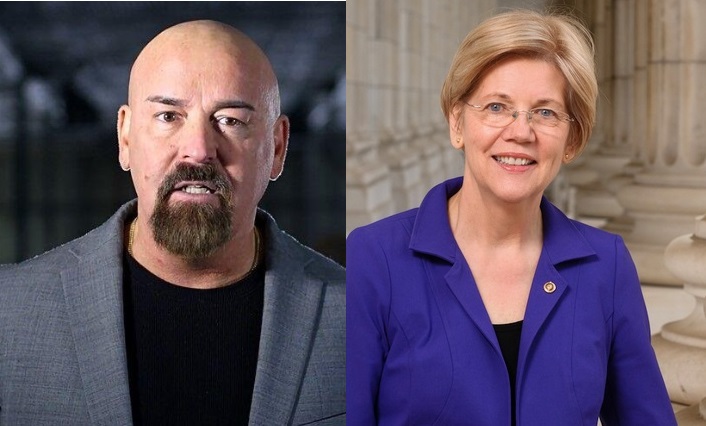Last spring, Senator Elizabeth Warren expressed her dissent by voting against a deal concerning border security and immigration reform. This issue is expected to be resurrected during her race against Republican John Deaton for a third Senate term. Warren, along with an array of progressive Democrats and Republicans, rejected the bipartisan immigration reform bill proposed in March. An analogous bill put forth in May also failed to obtain the necessary votes, with Warren absent due to her granddaughter’s graduation. Regardless of her absence, a representative from her office emphasized that the Senator’s stance on the bill remained unchanged.
The Democratic leadership at Beacon Hill expressed their support for the proposed immigration bill. If passed, it would have served as the first comprehensive modification to immigration laws in several decades. It aimed to grant the President greater authority to halt illegal immigration, while also seeking to revamp the asylum process.
Warren, during a press conference after a different event, clarified why she chose to vote against the reform bill in March. She noted that she was aware that her vote was unlikely to lead to the bill’s defeat, as the Republicans already had the numbers to halt it.
According to Warren, two days prior to the bill’s appearance on the Senate floor, where it was predicted to garner monumental support, former President Donald Trump urged Republicans to vote against the bill. Trump’s aim was to keep the issue of border chaos alive, a purpose that was achieved as planned. She remarked on the Republicans’ willingness to appease Trump, thus prioritizing perceived chaos at the border over the interests of the nation. She reiterated that when she voted, the bill’s defeat had already been sealed.
John Deaton emerged as Warren’s chief opponent after securing a victory in the Republican primary. Deaton expressed his support for the bill, perceiving it as an initial measure to alleviate the migrant issue. He highlighted the sheer number of people migrating across the borders, pointing out that any risk, no matter how small the percentage, translates into a significant number of people, making it a security crisis.
Deaton conceded that the bill was not perfect but argued that his willingness to address the issue of immigration distinguished him from the other candidates. He was particularly critical of his Republican primary opponents, who he opined mirrored Senator Warren’s inaction on the issue and the refusal to endorse the bill.
A poll conducted by the GBH News/CommonWealth Beacon and the MassINC Polling Group commissioned in spring unveiled that immigration was perceived as either a significant issue or a crisis by Massachusetts residents. The situation was particularly acute at that time due to a surge of low-income migrant families, which had strained emergency family shelters to their limits. According to Deaton, the influx of migrants was placing significant strain on the state’s infrastructure, hospitals, schools, and even on hotel capacities.
Consequently, Governor Maura Healey’s administration had to start implementing stringent policies regarding shelter provisions. But these issues continued to persist and further escalated in some areas in the following months
On the contrary, Warren indicated that she is more focused on the future, with the goal of engaging in negotiations concerning new immigration policies, as opposed to dwelling on the past failure of the bill. She pointed out several flaws in the bill that led to its downfall.
Senator Warren recognized the advantageous aspects of the proposed bill, such as the allocation of resources towards bolstering border security and adequately funding immigration courts. She also identified the need for states to receive more funding to face the challenges of immigration. However, she criticized the bill for its subpar provisions and for lacking a roadmap to citizenship for Dreamers and essential workers during the pandemic, among others.
During the Senate vote in May, Senate Majority Leader Chuck Schumer lauded the considerable bipartisan support the bill had amassed. Even President Joe Biden had expressed his approval for the bill at the time.
Schumer emphasized the need for Congressional attention to the untenable situation at the border. He also highlighted the widespread public support reflected in multiple polls, irrespective of party affiliations. The American public, according to him, favored the resolution of the issue through a bipartisan process.
Schumer acknowledged that there was an overwhelming desire among Americans to achieve improvements. This sentiment was reflected in a scant 8 percent opposition against such an approach, reiterating the eagerness of the population to witness progress and bipartisan cooperation.


